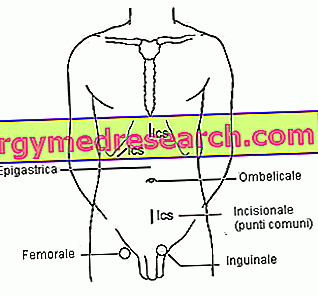Definition
Dysgeusia is a disorder characterized by distortion or weakening of the sense of taste.
The altered or reduced ability to perceive and distinguish flavors can result from lingual and / or oropharyngeal infections and inflammations (eg candidiasis, glossitis, xerostomia and stomatitis).
Sensations of abnormal taste may be due to psychiatric disorders (eg schizophrenia and anorexia nervosa), lesion of the trigeminal nerve and glossopharyngeal, facial paralysis, tumors of the brainstem, cranial traumas, stroke, ponto-cerebellar angle neuromas, diabetic neuropathies and multiple sclerosis.
Dysgeusia can also derive from congenital malformations (eg macroglossias), auricular pathologies (such as herpes zoster oticus) and respiratory diseases, such as sinusitis and rhinitis.
Sometimes, dysgeusia may present as a side effect in taking medications (including antibiotics, anticholinergics, antihistamines, ACE inhibitors, antidepressants and antineoplastics) and in head or neck radiotherapy.
In other cases, the anomalous gustatory perception is the consequence of smoking, alcoholism, poor oral hygiene, menopause and pregnancy.
Dysgeusia can also be traced to severe kidney failure and can occur following a heart attack, liver disease and seizures.
Other causes of taste alteration are dental pathologies, oropharyngeal tumors, gastroesophageal reflux, nutritional deficiencies (zinc) and exposure to toxic chemical-industrial substances (insecticides, benzene and chromium).
Possible Causes * of Dysgeusia
- AIDS
- Contact allergy
- Nervous anorexia
- Candida
- Caries
- Headache
- Diabetes
- Cerebral hemorrhage
- Pregnancy
- Herpes zoster oticus
- Stroke
- Heart attack
- Kidney failure
- Hypothyroidism
- Menopause
- Parkinson's disease
- Acoustic neurinoma
- Periodontitis
- Gastroesophageal reflux
- Rhinitis
- Mouth Urente syndrome
- Down syndrome
- Sjögren syndrome
- Turner syndrome
- Sinusitis



